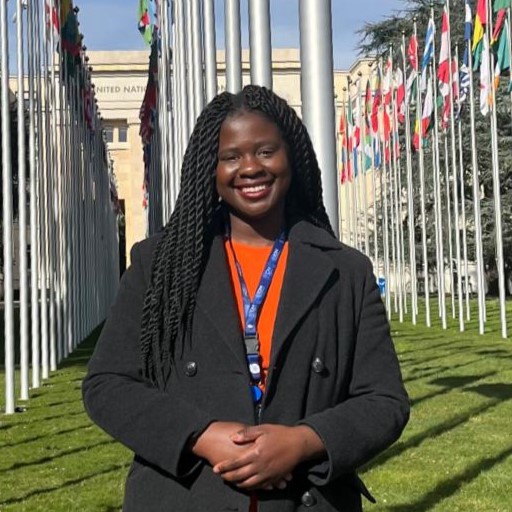Working for the United Nations
Kelly-Ann Fonderson (MPhil Development Studies, 2019) responds to a series of questions
 When and what did you study at Oxford?
When and what did you study at Oxford?
I read the MPhil in Development Studies at Green Templeton College. I matriculated in 2019 and completed my MPhil in 2021.
What job are you currently doing, and what is your role?
I am a United Nations Junior Professional Officer at the headquarter office of a UN agency. My Unit focuses on protection from and response towards sexual misconduct. In my Unit, we contribute towards policies, campaigns and programmes that protect vulnerable populations from sexual abuse by aid workers and respond to sexual misconduct with a victim-centred approach.
How did you secure the job?
My journey to getting this job was unconventional. I was working full-time in Oxford when an HR staff member of the UN’s JPO programme for Dutch candidates contacted me on LinkedIn. They noticed my profile and encouraged me to apply for two positions. I waited for vacancies which suited my location, language and subject interests and submitted three meticulously tailored applications in June 2022. After being shortlisted for one position, I completed two timed assessments online. I prepared by reading every policy and publication I could find on my agency and other UN agencies on the topic. I also reached out to previous JPOs on LinkedIn.
That summer, I took annual leave from my full-time job in Oxford to teach economics foundations in Riyadh, Saudi Arabia. While teaching at Princess Nourah University, I was invited to interview for the UN agency. It was stressful because the internet connection wasn’t stable, and I still had to prepare lessons. Two weeks later, I got the job offer while packing my bags to head to the airport! I was ecstatic and in shock.
Which skills and experience helped you in getting the job? Did your time at Oxford contribute?
The TuWezeshe Akina Dada fellowship sponsored by Forward UK was an invaluable experience for me. I was a 2019/20 TuWezeshe fellow and was trained in feminist theory and advocacy against gender-based violence with a specific focus on FGM. My fellowship focused on sexual violence towards women and girls of African descent in the UK. My current role intersects with gender-based violence, and we work with migrant communities. My organisation is highly projectised, so understanding project budgets and setting clear programming objectives are valuable skills I still use, which I learned through my fellowship.
Studying Development Studies – a highly interdisciplinary course- encourages critical thinking through economic, anthropological and political lenses. These disciplines inform my understanding of violence, power dynamics and how institutions are shaped.
What advice do you have for black Oxford students who want to work in international development?
There are many ways to be engaged in development work, from finance, academic research, international organisations, government and NGOs. If possible, get field experience, even if that means volunteering and doing fellowships or internships. Seek mentorship. Connect with alumni groups, students, and university staff who have experience you can learn from. If you have an interest in working with the UN, it helps to be multilingual and work towards being proficient in at least two of the official languages.
Put yourself out there, whether that’s by attending networking events and making genuine connections or posting more on LinkedIn.

